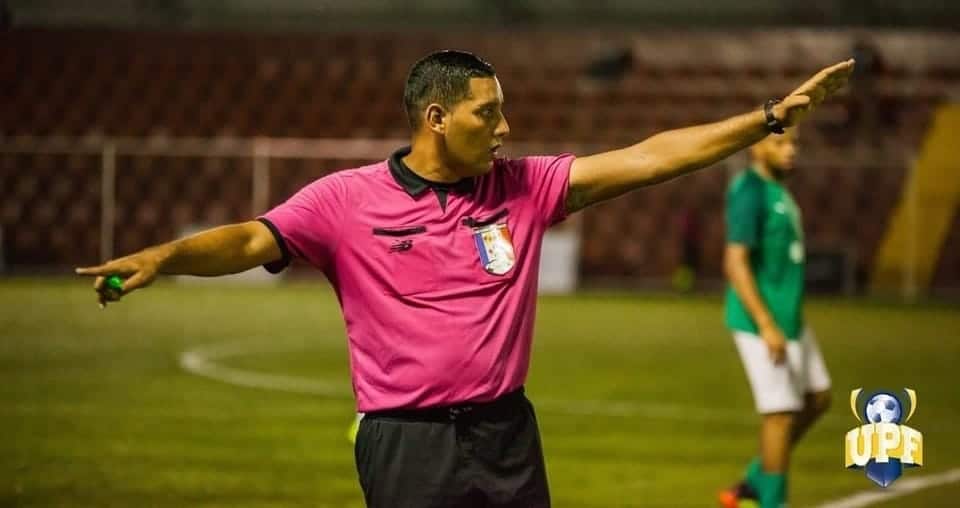
Technology continues to have a big impact on virtually every aspect of life today. If you thought that technology is only widely used in industries and big organizations, you’ll be surprised to know that it is broadly used in soccer too. Soccer is the world’s most popular sport and for the longest time, technology was not a major consideration when playing competitive matches. However, since 2018, during the world cup tournament in Russia, VAR has established itself as an integral technology that helps to make crucial decisions during matches.
Apart from the human referee, VAR comes in handy in games as it helps to spot what the central referee and linesmen aren’t able to see. With technology becoming part and parcel of the major leagues around the world, it’s difficult to ignore its impact. But, just like any other technological innovation, there are disadvantages associated with VAR that you should know about. In this article, you’ll get to learn about the pros and cons of VAR in soccer.
The Pros
Better Decision Making
One of the pros of VAR is the ability of a referee to make an informed decision regarding an incident during a match. If you’ve been following soccer for a while or if you’re an ardent fan of the game, you know very well that the decisions of a referee carry a great deal of significance. Before the introduction of VAR, it was not possible for a referee to overturn a decision following an incidence. Nowadays, it is possible for a referee to change his mind because of the influence of VAR. For example, if a referee decided to give a penalty and then the VAR sees it differently, he can overturn the initial decision.
So, the technology has the advantage of allowing the referee to have a second opportunity to make the right decision after an initial error. Quite frankly, referees are human beings and, therefore, they can make mistakes when making important decisions during a soccer match. During such instances, VAR technology makes it possible for referees to be fair and make conclusions based on evidence.
Excitement During Games
Soccer is a beautiful game that brings different people together. The kind of excitement that fans have during matches can be fueled by not only watching your favorite team playing, but also the drama that often takes place in stadiums. What are some of the things that fuel drama in stadiums? Believe it or not, VAR plays a huge role in intensifying the drama and tense moments that happen in soccer games. Before VAR makes a decision about an incidence, there is usually a wait that lasts a few minutes. The wait can take up to 5 minutes depending on the nature of the incidence.
Some scenarios are so technical that the specialists handling the technology have to take a longer time to make the final conclusion. It is during such moments that excitement levels rise so high among the fans. Soccer should not be a boring game. A central referee can make a decision within seconds and allow the game to continue, yet he has made a wrong call. That is why VAR is so important in creating a sense of suspense and thrill when fans from both teams wait for the final decision. Ideally, games should create high expectations and enthusiasm for fans of both teams, and technology can make this possible.
Maintaining Player Discipline
Player discipline is an integral part of sporting. Regardless of the sport that one is engaging in, there should be high standards of discipline. There are cases of players not showing discipline while playing in competitive matches. This is a major point of concern in soccer. While referees are present to ensure that the much-needed players maintain discipline when playing soccer, it’s possible for them to miss crucial moments and incidences that can define the outcome of matches. It is for this reason that technology in soccer becomes very important. For example, a player can make a dangerous tackle on a player and the referee fails to see it well.
Obviously, the decision of the referee in such a case will not be out of facts or evidence, but speculation. Sometimes it can even be out of pressure. Also, a player can dive inside the penalty area with the intention of attracting a penalty decision from the referee. This is lack of proper discipline and integrity because it can be costly to the other team. By the way, if you want to know why soccer players flop so much make sure to read my article about the topic here.
All these are practices that damage the good reputation of the sport. Whenever players demonstrate lack of discipline, it’s not good for the game. It destroys the flavor of the game and makes it unfair for the affected teams and players. That is why VAR is good for soccer. It is a valuable tool that helps to maintain order during soccer matches. After a close evaluation from VAR technology, players who cross the boundaries of fair play are punished by being sent off or receiving a warning.
Imagine if a player gets away with a serious tackle that could potentially end the career of another player. It would not be a good thing for the game, right? The good news is that the innovative technology is able to check that and help referees make the best decision. Nobody wants the world’s most popular game to lose its popularity because of indiscipline cases. That is why VAR is a popular sporting technology in the soccer world. It has a way of restoring order in the game.
Avoiding Controversial Decisions
If you’ve been a soccer fan for a while now, you must have, in your memory, some controversial moments where decisions were made or incidences left unchecked and, as a result, caused serious consequences. Unfortunately, some of these consequences affect entire nations and the careers of players. Imagine a player scoring a goal with the hand and it’s allowed to stand because the referee didn’t have a closer look at it. What will the players and fans of the opponent team feel? What if they fail to qualify for the world cup because of such an incidence? In some cases, a referee fails to award a goal even though it crossed the goal line. Obviously, these are situations that have a huge impact on not only the play, but the feelings or those who feel robbed of their victory and effort.
In order to correct such issues, VAR technology came in handy. Since its inception, it has been possible to eradicate controversial moments and decisions. With the technology, it is possible to avoid such controversial matches and decisions. It helps to uphold fairness in the beautiful game. Referees are able to look at the game keenly and make decisions that are fair for everyone involved. Without fairness, it is not possible for fans and the soccer community to enjoy the game. If technology has to be part of soccer for fairness to stand, then so be it!
Improving the Game
Everything needs improvement for it to serve its purpose well enough. There will always be areas that will require adjustments for something to be effective. This is what soccer needs for it to increase its value and usefulness in a world that loves sporting activities. While there are many things and aspects that would help to improve soccer, VAR technology is one of the most pivotal building blocks that will help take the game to another level. Though games cannot be perfect, it definitely makes them to have a sense of sanity. As you already know, referees are mere human beings who don’t have the ability to make perfect calls all the time. However, with the introduction of technology in the game, it is possible for them to handle soccer matches in a way that increases the value of the game.
Cons

Just like any other technology, there are disadvantages associated with VAR. Here are the major cons of the technology:
Time Wastage
Time is a very vital resource in soccer matches. If a team is looking for a win desperately, anything or anyone that wastes time happens to be a huge hurdle to its success. As you already know, VAR decisions take time because they involve a careful analysis of the incidence under check. During these moments, the team that wants to win feels disadvantaged because it slows down the momentum of the game.
Similarly, the fans feel let down because of the time it takes to come up with a final conclusion, especially if the decision goes against them. During the dying minutes of a match, stopping the game to analyze a decision creates tension for either of the teams because time is such an essential factor here. The time spent on the video analysis can be the defining opportunity for a team since it puts their momentum on hold. This is one of the issues that opponents of VAR have been putting forward.
Lack of Transparency
While many believe that VAR brings a lot of good things to the game, there are those who see it differently. They feel like there is no transparency regarding the decision that a referee makes. When an incidence is under review, the VAR team and the central referee engage in deliberations before coming to the final conclusion. Unlike in other games like rugby where the public can access such conversations, it is not the same in soccer. The conversation remains hidden to the public and it’s only the two parties with access to it. On the same issue, it’s not likely that the soccer governing body will approve the conversation to be made public any time soon.
It Can Still Get Decisions Wrong
Despite the idea that VAR came to make decisions better, it’s quite unfortunate because it can still get decisions wrong and create unnecessary controversies. This makes it unfair for teams, fans, players, and coaches affected by the decisions made. The decisions can be subjective in nature, thus creating an avenue for controversy, which is not good for the game. The point here is that since VAR acts as a tool for making decisions based on evidence, they should get everything right. However, though the technology will show what happened, the interpretation from the VAR team can still be wrong and lead to unfairness.
Referees Rely More on Technology
Regardless of the use of technology in the game, the decisions of referees are still important. The sport relies on the expertise and experience of referees to make the right decisions during matches. For the bigger part of soccer matches, the decision of the referee is what controls the game. However, with the introduction of VAR, there is a possibility of referees losing confidence in their ability to officiate matches. There is a likelihood of them being too dependent on VAR to the extent that they affect the way they make decisions.
This will dilute the goodness of the game. Referees should take control of matches without feeling external pressure. If they allow pressure to take the bigger part of their responsibility, they will erode the integrity of the game. The best thing would be to allow referees to have the freedom to make independent decisions without being overly influenced by technology.
The truth of the matter is that technology is good and it has a big role to play in making soccer better. The ability of referees getting help when making crucial decisions during matches is a brilliant idea. Indeed, there are great things associated with VAR in today’s sporting world. Soccer stands to benefit a great deal. However, there are disadvantages that arise from the use of technology. It is these disadvantages that should set officials of the game to the drawing board and do some review to establish what is good and what is bad. After such a review, it will be possible to know where to adjust- what needs addition, and what needs to be left out. We can only wait and see how the soccer world will respond to the concerns raised about VAR.

